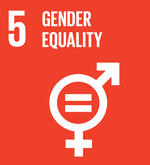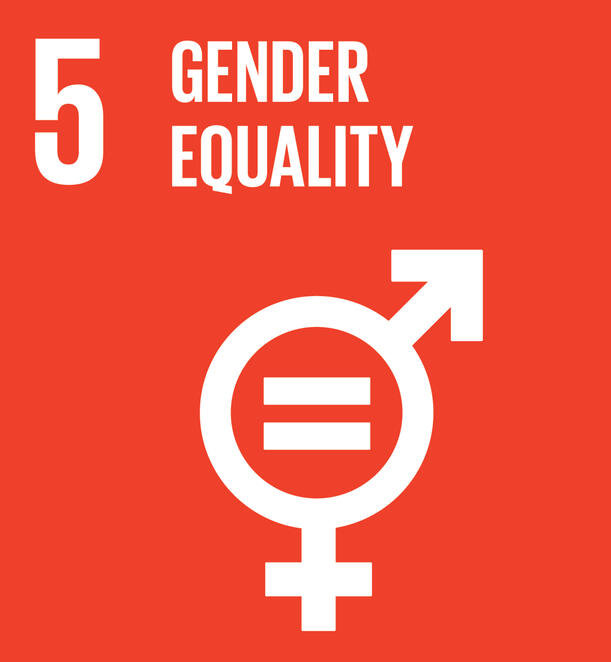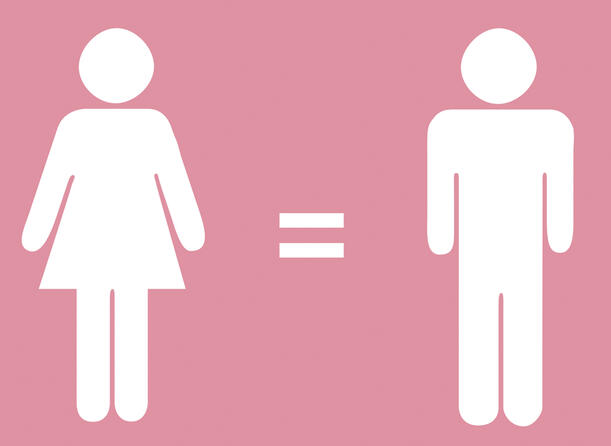
Gender Equality
By: Chloe Shu
What is Gender (In)equality?

Gender Equality is the 5th Global Goal of the UN's 17 Sustainable Development Goals.
The simple definition of gender equality, or in this case, the lack thereof, can be classified as all genders having equal rights, opportunities, and responsibilities.
All people of different genders, sexuality, race (etc.) are affected by gender inequality. This includes women, men, trans and gender diverse people, children and families.
Gender equality is not about creating a society where one gender is better than the other. It is about creating an equal society where people of all genders, regardless of race, religion, sexuality, are equal.
Some problems caused by Gender Inequality
"The root cause of gender inequality is the role society assigns to women."
Here are some ways gender inequality can affect our society
1. Questioning their worth - research shows that women often struggle with asking for higher pay or promotions in a job.
2. Racism affects gender equality - unfortunately, race plays a major role in how women are treated and compensated. see below for more about the pay gap.
3. Pay gap - on average (in the U.S.), Asian women and Pacific Islander women are paid 46,000, while Hispanic and Native American women are paid an average of 28,000-31,000 per year. It makes you wonder, does society think men can do a job better than a women can?
4. Education - in many lower income countries, people prioritize sending boys to school. This causes many girls to be uneducated.
5. Lack of sanitary items - in many low income regions where there is poor infrastructure, bathrooms are not provided for girls, meaning they cannot go to school with proper sanitation during menstruation (or they cannot go at all).
Gender Inequality in Hong Kong (our community)
Hong Kong prides itself on being a fair society. unfortunately, the pay gap between men and women living below the poverty line has stretched. Women have a pay gap of around 22% less than men (TWF).
How can I help?
Here are some things that you and your friends and family can do to support gender equality!!!

Promote and share the cause on social media - use your platform to spread awareness and educates others on the issue
Remember and recognize when someone is being treated unfairly due to their gender (or other things, such as race and/or religion for that matter.)
Fight the good fight - stand up for someone who is being treated unfairly
Walk the talk about income inequality - raise your voice and let it be heard about the pay gap between men and women (other genders too!)
Try to be more open minded - gender equality is not something that will happen overnight; it starts with you, changing YOUR mindset
be more aware of gender stereotypes.
Remember that gender stereotypes affect all genders. For example, the stereotype that a man can do any job better than women is false. Other stereotypes include: girls should play with dolls and boys with trucks; girls should be interested in art and not STEM subjects; boys should be smart and engage in sports; girls need to marry; etc.
Stand up against harassment or teasing - don't be a bystander to sexist acts. Educate and be polite towards all genders and all people.
Support charities in any way you can (which includes raising awareness) that aim to make gender equal. linked below.
Charities
Water Aid's key is to get women and girls involved to produce successful water and sanitation services for underserved communities. They help them find out what they need the most.
Equality Now holds governments responsible for ending legal inequality, sex trafficking, sexual violence & harmful practices, such as female genital mutilation (FGM) & child marriage around the world.
More & Resources
Here's some facts and stories about how gender equality still exists.
1. 62 million girls around the world don't have an education (denied), which traps them in cycle of poverty and dependence. Fortunately, leaders like Michelle Obama and Malala Yousafzai are standing up for them.
2. Women being stigmatized seems to be the norm. Menstruation, in particular, is surrounded by stigmas that make it difficult for millions of girls and women to get on with their daily lives.
3. In Bangladesh (as of 2016), 65% of women get married before they turn 18.
4. In parts of Latin America, weak laws create a culture that is particularly dangerous environment for women and girls to receive domestic violence.
More on Gender Equality
sources
By Chloe Shu